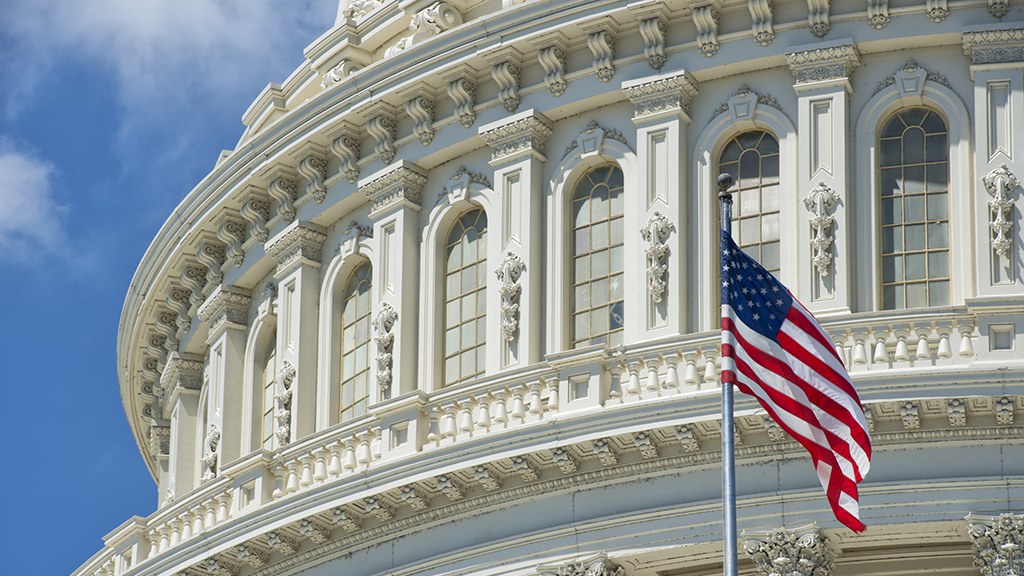Legislative Update
NSTA Unveils 2023–2024 Legislative and Advocacy Agenda
By Ralph Forsht, Manager, Advocacy & Legislative Affairs
Posted on 2023-05-22

Disclaimer: The views expressed in this blog post are those of the author(s) and do not necessarily reflect the official position of the National Science Teaching Association (NSTA).
NSTA’s 2023–2024 Legislative and Advocacy Agenda summarizes the association’s priorities for advocating in Congress for federal legislation that supports science educators, students, and equitable science and STEM learning experiences for all. Below are the five broad areas of focus highlighted:
Elevate the Status of Science Education and Emphasize the Value and Importance of Science Literacy
Every student deserves access to a high-quality science education. A scientifically literate society is essential to both a healthy democracy and to our future economic prosperity. Lawmakers must act to elevate the status of science education and emphasize the value and importance of science literacy in our nation’s federal and state education laws. NSTA also asks the House of Representatives and the U.S. Senate to hold hearings to highlight the lack of dedicated science education in our public schools.
Progress Toward More Equitable Science Education—For the Classroom and With Science Teachers
We need to equip and empower all educators to provide students access and opportunity to succeed in science. Congress needs to build on efforts adopted in the CHIPS and Science Act of 2002 to help schools make progress toward a more equitable science education—for the classroom and with science teachers. The CHIPS and Science Act helped to codify targeted programs administered by the National Science Foundation (NSF), including the Historically Black Colleges and Universities Undergraduate Program, the Hispanic-Serving Institutions Program, and the Louis Stokes Alliances for Minority Participation Program.
Science Should Have Equal Priority With Mathematics and English Language Arts in Federal and State Accountability and Assessment Requirements
No Child Left Behind (NCLB) was signed into law in January 2002. That legislation elevated math and English Language Arts and deemphasized science education. NSTA is challenging Congress to reverse that dynamic and make science on par with math and English Language Arts. Congress and the Department of Education should also give science equal priority with mathematics and English Language Arts in federal accountability and assessment requirements. Accountability drives the amount and quality of instruction provided in the classroom and will result in better student outcomes.
Teacher Shortage—Science and STEM Teachers Are Desperately Needed in School Districts Throughout America
Congress and the Administration need to help school districts and states address the teacher shortage issue for science and STEM teachers. Schools need additional resources and tools to help recruit, retain, and reward quality science and STEM teachers. Our nation’s elected officials must create a sustainable system that prepares, retains, and supports teachers through accessible, high-quality teacher preparation, competitive compensation, ample resources, and ongoing professional learning and mentoring opportunities. We must as a society make teachers a more valued and respected entity within their communities. We need to treat and support teachers as the professionals they are through their development and the culture and environment in which they work—not just in some schools, but in all schools.
Fiscal Year 2024 Funding Priorities—Public Education/Science Education
NSTA engages in the annual federal appropriations process to advocate for science education funding and funding and support for science teachers. Congress annually funds a significant number of programs that impact public education and science education. Federal funding priorities for Fiscal Year 2024 include the following programs critical to science and STEM education: Title IV-A funding, flexibility for Science and STEM spending within Title I, new and enhanced CHIPS and Science Act education programs at NSF, Teacher Quality Partnerships, and existing NSF STEM education programs.
NSTA will share regular legislative updates to showcase our efforts to advance science education and literacy on Capitol Hill and within the Biden Administration.
The mission of NSTA is to transform science education to benefit all through professional learning, partnerships, and advocacy.


